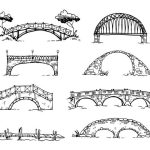Legislative Overview ~ March 10, 2025

During today’s floor sessions, lawmakers debated a variety of pressing topics, showcasing the diverse scope of issues under consideration in the North Dakota 69th Legislative Assembly. Among the subjects discussed were the renaming of several state bridges in memorial, designated gaming areas within family-accessed facilities, genetic testing parameters, and changes to CDL licensing requirements.
These debates reflect emerging trends in the session, and we are closely monitoring them to ensure that we accurately assess their implications. The renaming of bridges, for example, highlights efforts to honor military veterans like Navy Lt. Cmdr. Carl Woods, whose legacy is commemorated through House Bill 1228. Meanwhile, discussions about genetic testing parameters and CDL licensing changes underscore ongoing concerns about privacy, practicality, and regulatory compliance.
Here’s a summary of what took place during today’s floor sessions:
27 Bills Passed in the Senate and awaiting Governor’s Signature: HB1030, HB1031, HB1033, HB1035, HB1039, HB1040, HB1043, HB1045, HB1051, HB1055, HB1056, HB1062, HB1065, HB1069, HB1070, HB1072, HB1074, HB1075, HB1075, HB1077, HB1079, HB1081, HB1082, HB1083, HB1084, HB1085, HB1087, HB1090, HB1108, HB1115, HB1116, HB1120, HB1124, HB1128, HB1133, HB1135, HB1148, HB1173, HB1178, HB1180, HB1211, HB1212, HB1215, HB1228, HB1261, HB1281, HB1293, HB1334, HB1357, HB1397, HB1403, & HB1520. Those that failed include: HB1107, HB1179, & HB1509. Those that failed include: HB1059,HB 1152, HB1232, HB1441 & SCR4023.
14 Bills Passed in the House and awaiting Governor’s Signature: SB2040, SB2061, SB2068, SB2079, SB2085, SB2087, SB2122, SB2125, SB2135, SB2164, SB2242, SB2277, SB2287, & SB2371. Those that failed include: SB2054, SB2062 & SB2373.
The Bills we are tracking regarding the business world include:
SB2040: https://ndlegis.gov/assembly/69-2025/regular/documents/25-8000-01000.pdf
This Bill updates North Dakota’s genetic counseling regulations by modifying requirements for genetic testing orders and licensure qualifications. It clarifies that licensed genetic counselors may only order genetic tests in coordination with a licensed healthcare provider, ensuring that medical supervision remains with the referring provider. The bill also revises licensing standards, extending the time limit for passing certification exams from four years to five years and allowing up to three attempts, with exceptions granted by rule.
This bill could impact genetic counselors, healthcare providers, and patients by ensuring that genetic testing remains under medical oversight while allowing more flexibility in counselor licensure. It may also streamline patient care coordination between counselors and physicians
SB2079: https://ndlegis.gov/assembly/69-2025/regular/documents/25-8090-01000.pdf
This Bill proposes to amend Section 25-01-01 of the North Dakota Century Code, revising the definitions of mental health professionals by creating a tiered classification system (Tiers 1-4). Each tier specifies the types of licenses or credentials required, ranging from psychiatrists and psychologists (Tier 1) to certified peer support specialists and technicians (Tier 4). This change could impact healthcare providers, licensing boards, and mental health services by formalizing classifications and potentially influencing service delivery or regulatory standards.
SB2085: https://ndlegis.gov/assembly/69-2025/regular/documents/25-8116-01000.pdf
This Bill establishes a new program within the North Dakota Department of Agriculture to participate in the U.S. Swine Health Improvement Plan. The Agriculture Commissioner would cooperate with the U.S. Department of Agriculture to improve swine health, welfare, and industry standards. This could benefit swine producers by enhancing the health of livestock, increasing marketability, and ensuring compliance with federal standards. If passed, this bill could raise concerns among swine producers and processors regarding compliance costs and the potential for stricter regulations. Participation in the U.S. Swine Health Improvement Plan might require additional health screenings, record-keeping, or changes to production practices, which could increase operational costs. The plan’s focus on animal health could also impact production timelines and profitability, especially if there are unexpected regulatory adjustments or increased oversight.
SB2086: https://ndlegis.gov/assembly/69-2025/regular/documents/25-8120-01000.pdf
This Bill updates North Dakota’s pesticide regulations by aligning certification and control standards with federal requirements. It amends definitions related to pesticide application, expands certification requirements for private and commercial applicators, and revises licensing regulations for pesticide dealers. The bill also clarifies procedures for handling restricted-use pesticides and introduces new guidelines for enforcement and compliance. This legislation could impact farmers, pesticide applicators, agricultural businesses, and environmental agencies by requiring updated certification processes and stricter compliance measures. While it may enhance safety and environmental protections, it could also increase regulatory burdens for businesses that rely on pesticides for crop protection.
SB2087: https://ndlegis.gov/assembly/69-2025/regular/documents/25-8121-02000.pdf
This Bill revises the administration of the state’s animal premises identification program. It designates the North Dakota Stockmen’s Association as the state’s administrator for federally sponsored identification programs related to cattle, horses, and mules. The bill also makes the information created or maintained by the state veterinarian or Stockmen’s Association confidential and not subject to public record requirements. Lastly, it specifies the disclosure of such information to authorized administrators under specific circumstances. This could impact livestock producers, particularly cattle, horse, and mule owners, by altering the confidentiality and management of their identification data.
SB2122: https://ndlegis.gov/assembly/69-2025/regular/documents/25-0257-04000.pdf
This Bill introduces the Uniform Commercial Real Estate Receivership Act in North Dakota. It provides a legal framework for appointing receivers to manage distressed commercial properties, outlining their powers and responsibilities, and setting procedures for property management and disposition during foreclosure. The bill impacts lenders, property owners, and courts by standardizing receivership processes, ensuring efficiency in handling troubled properties. With this, the court is responsible for appointing receivers in commercial real estate cases. The appointment can be requested by a party with an interest in the property, such as a lender or creditor, typically as part of foreclosure or other legal proceedings. The receiver is tasked with managing and preserving the property while legal matters are resolved
SB2373: https://ndlegis.gov/assembly/69-2025/regular/documents/25-1348-03000.pdf ~ FAILED
This Bill updates North Dakota’s gaming laws by modifying the definition of alcoholic beverage establishments and revising the permissible locations for gaming. The bill clarifies that alcoholic beverage establishments must be licensed under Chapter 5-02 and serve alcoholic beverages for on-site consumption, explicitly excluding liquor stores, gas stations, grocery stores, and convenience stores from qualifying as gaming locations.
Additionally, the bill places new restrictions on gaming sites, including a 15-site cap per licensed gaming organization, with exceptions for those operating more than 15 sites before January 1, 2023. It also mandates that electronic pull tabs, poker, and other games be played only in areas where patrons must be 21 or older, either in an alcoholic beverage establishment or a bingo hall authorized before 2025. These changes could impact charitable gaming organizations, bars, and gaming operators by limiting expansion opportunities and restricting where gaming devices can be placed.
HB1093: https://ndlegis.gov/assembly/69-2025/regular/documents/25-0407-01000.pdf
This Bill proposes amendments to North Dakota’s commercial driver’s license (CDL) requirements. It clarifies CDL exemptions for specific vehicle types such as farm and emergency vehicles, and provides waivers for certain agricultural and municipal operations. The bill also aligns state regulations with federal guidelines regarding hazardous materials transport and CDL issuance procedures. Affected stakeholders include farmers, municipal employees, and commercial vehicle operators.
HB1131: https://ndlegis.gov/assembly/69-2025/regular/documents/25-0227-02000.pdf
This Bill allows farms in North Dakota to sell raw milk and raw milk products directly to consumers for personal consumption but prohibits sales to wholesalers, retail stores, or across state lines. The bill also exempts farms selling raw milk from certain regulatory provisions. This legislation could impact dairy farmers, small-scale producers, and consumers seeking unprocessed dairy products, while maintaining restrictions to prevent mass distribution.
HB1253: https://ndlegis.gov/assembly/69-2025/regular/documents/25-0786-01000.pdf
This Bill proposes amendments to North Dakota’s gaming regulations, granting the attorney general the authority to impose fines for gaming violations. The bill establishes minimum and maximum fine amounts for various gaming entities, including licensed organizations, distributors, manufacturers, and site owners. It aims to strengthen regulatory compliance by introducing financial penalties in addition to or instead of license suspensions. This bill could impact businesses involved in charitable gaming operations.
HB1440: https://ndlegis.gov/assembly/69-2025/regular/documents/25-0298-03000.pdf
This Bill proposes changes to regulations governing cigar lounges in North Dakota. The bill amends requirements for cigar lounge certification, specifying criteria such as ventilation systems, humidor presence, and revenue thresholds. It clarifies that cigar lounges must generate at least 15% of their gross income from cigar and pipe tobacco sales to maintain certification. The bill streamlines reporting requirements to the tax commissioner while maintaining confidentiality provisions. These changes could impact businesses operating cigar lounges by adjusting compliance standards and reporting obligations.
HB1471: https://ndlegis.gov/assembly/69-2025/regular/documents/25-1227-03000.pdf
This Bill seeks to regulate payment methods used by dental benefit plans in North Dakota. The bill prohibits these plans from requiring dentists to accept only credit card payments and mandates transparency regarding fees associated with electronic payments. It requires clear notification of alternative fee-free payment methods and disclosure if the plan profits from transaction fees. This bill impacts dental clinics and insurance providers by offering greater flexibility and transparency in payment processes.
~ As the 69th Legislative Session in North Dakota progresses, the focus on tax-related bills has been somewhat limited. While a few property tax bills are still under consideration, they don’t appear to offer significant changes for businesses or individuals at this time. How is your legislator doing thus far in the 69th Legislative Session? Keeping track of your legislator’s voting record can help you assess their stance on issues that matter to you and your business. This information can be valuable in building trust or identifying areas of concern. As the session continues, stay engaged and use all resources at your disposal to stay informed about the legislative decisions that may impact you and your business.
Jan Wangler, Executive Director 

